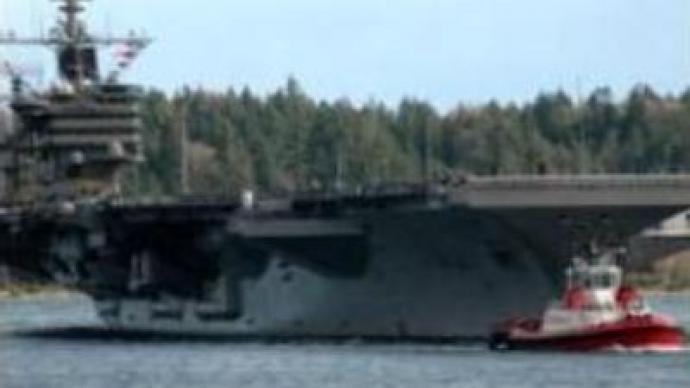"Wise Americans" to protect Iran from Bush

The Iranian president Mahmoud Ahmadinejad claims “wise Americans” will not allow their government to attack Iran. The statement comes as a U.S. aircraft carrier and accompanying warships have been sent to the Gulf.
“Their pressures are mostly psychological pressure. They know that they are not able to stop our nuclear activities from outside so their only hope is to create an atmosphere of tension, fear and disappointment inside the country, which of course is incorrect,” he announced.This way Iran responds to a second U.S. aircraft carrier, USS John C Stennis, being sent to the Gulf. U.S. Defense Secretary Robert Gates says the build-up of forces is aimed at showing Iran that American power in the Middle East has not been weakened by the war in Iraq.The Islamic country’s controversial nuclear program has raised International concern. America and some of its western allies accuse Iran of trying to develop nuclear weapons. Tehran has consistently denied this, saying it needs nuclear power to generate electricity. Baria Alamuddin, the foreign editor of the Arabic newspaper Al Hayat, says the people in the Middle East region don’t want another nuclear power in the area:“People are really very worried about an environmental disaster; we know what happened in Chernobyl. Also they fear another war, people don’t have great respect or trust in the way the Americans have been conducting themselves in the Middle East,” he states.Washington says it wants to solve the dispute through negotiations, but hasn't ruled out strikes if that fails. During his annual State of the Union address, American President George W. Bush called Iran a source of regional violence.But earlier on Wednesday, a bipartisan group of U.S. congressmen put forward legislation to prevent the government attacking the Islamic Republic without the permission of Congress. Russia has played an important role in trying to find a diplomatic solution. Moscow, which has strong trade ties with Iran and is building its Bushehr power plant, has been pushing the oil rich country to allow IAEA nuclear inspectors at its nuclear facilities.A U.S. attack against Iran would have international consequences. The question is could the Bush administration afford another conflict in the region, with the unpopular war in Iraq on their hands?
You can share this story on social media:












